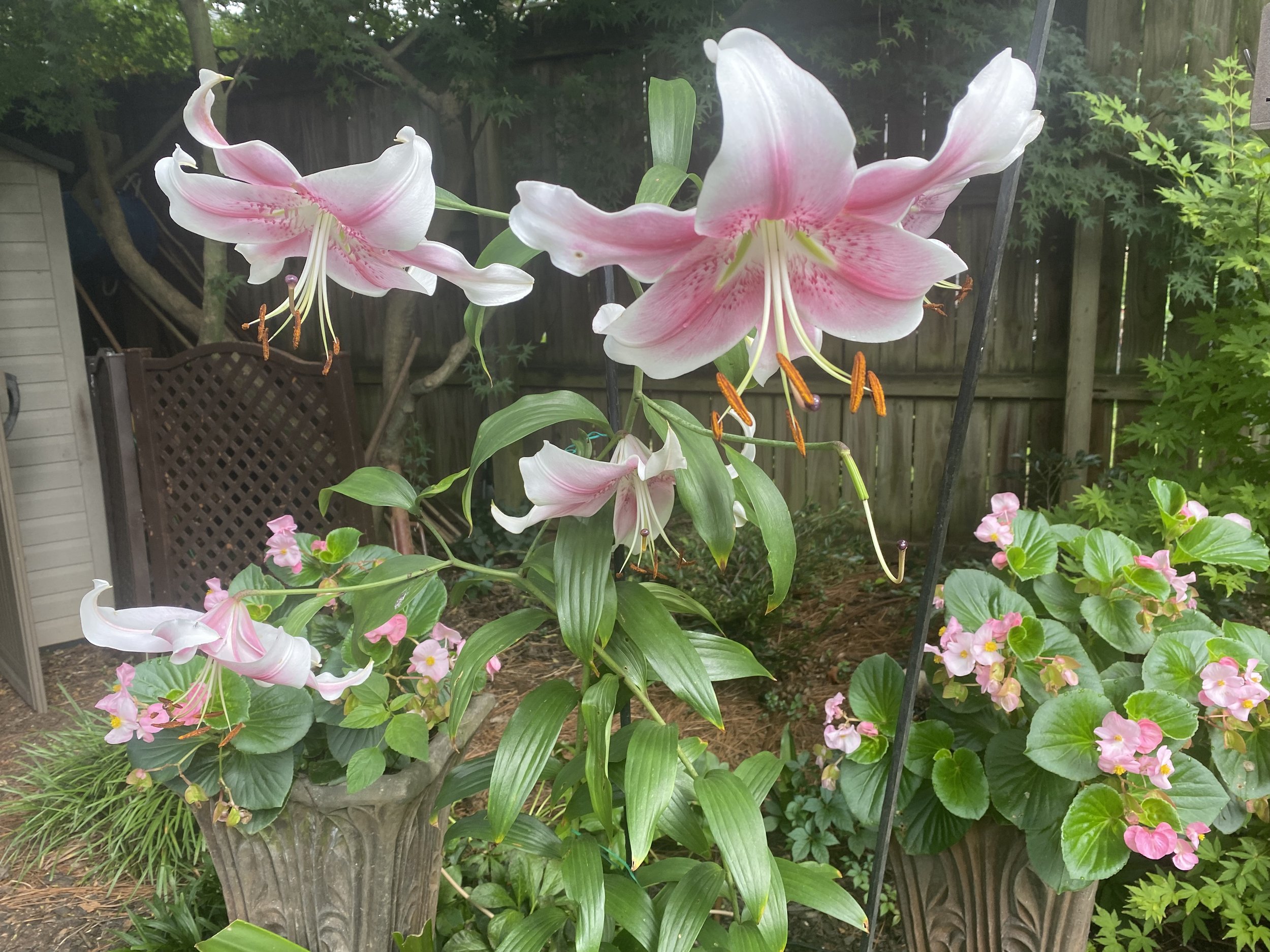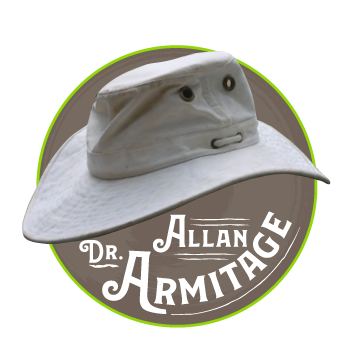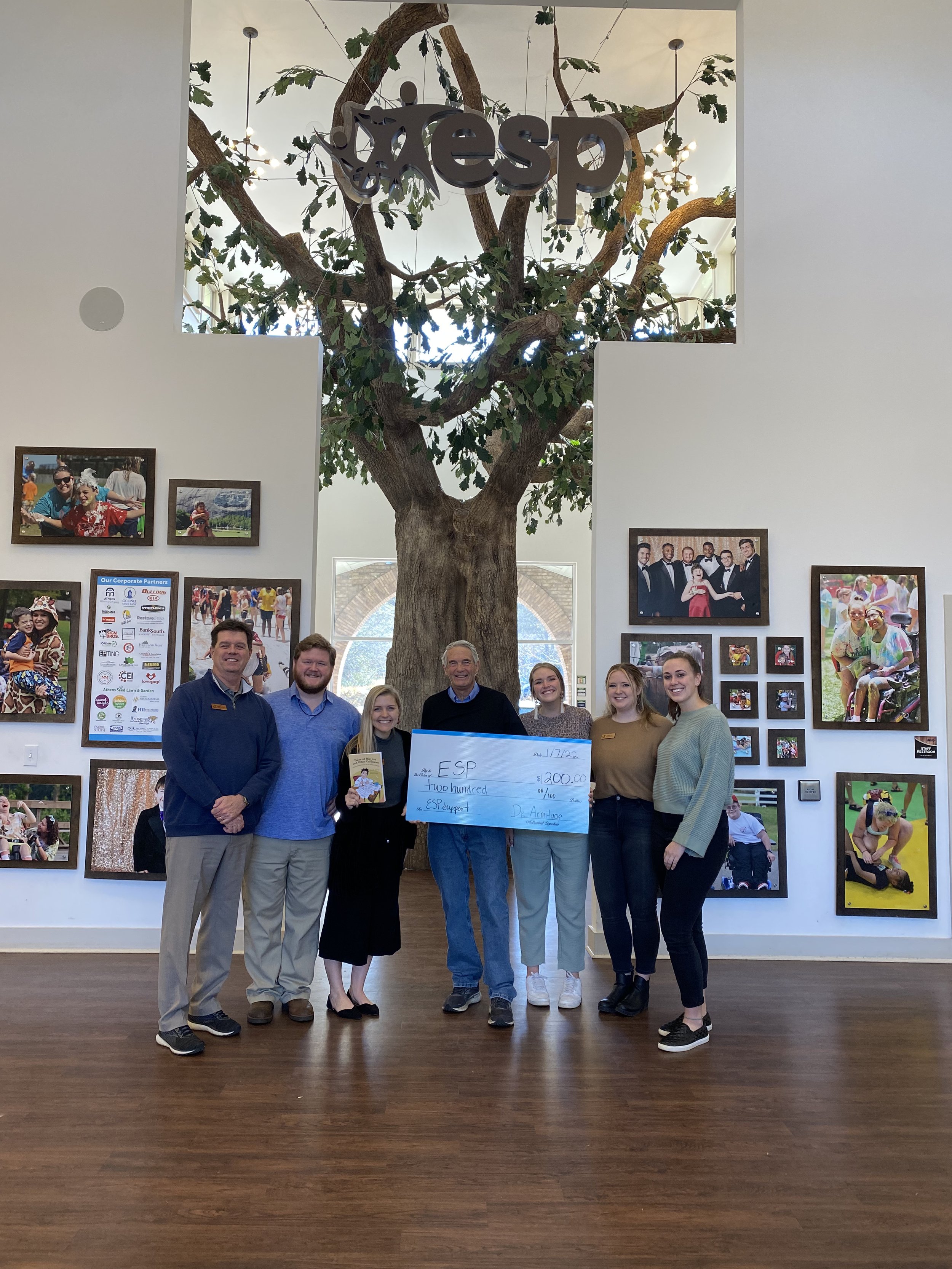The Month is February, the Year is 2022, and Winter is not Going Anywhere.
When I lived in Montreal where winter was a five-month affair, I remember thinking that people in the South were really fortunate to have such a long growing season. They could garden all year! If I ever moved south, I would not miss winter at all.
Now living in the South, I love winter even more, and oh boy, do I ever love the break from gardening that winter provides. Certainly, winter in Athens, GA is nowhere close to those in Montreal or Dayton; not as cold and not as much snow. But it kills a few bugs, destroys some fungi and provides a much-needed cold treatment for shrubs, bulbs and perennials in our temperate gardens.
Gardening duties in late fall and winter are really not that much different in Charlotte and Waterloo, Ontario. But once the roses and perennials are cut back, the annuals removed, and the old leaves composted, now what do we do?
Gardening in winter
Winter time sowing:
Now is the time to think about sowing seeds for the spring, whether vegetable or ornamentals. Tomatoes, peppers, greens and a ton of other veggies are far easier to find through seed sources than at retail. If you search online, you will find many companies, but I recommend a couple of extra special companies.
Renee’s Garden
I not only recommend Renee’s Garden Seeds because of their fabulous diversity and Renee Shepard’s passion for commitment to gardeners. But also, I appreciate her commitment to sustainable gardening and the company’s donations of seeds to organizations and educational programs. Some of their stories can be found on their website.
Botanical Interests
I also recommend the high-quality seed and garden products at Botanical Interests. I find these to be some of the most informative seed packets. However, what makes them extra special for me is their excellent and easily readable sowing guides. They provide the most important data – the number of weeks seeds should be sown before the last frost date. Their diversity of veggies, flowers and herbs is expansive.
Plant Buying:
It is that time to peruse catalogs and think about plants for spring. When your local garden centers open in the spring, go out and buy. However, in the meantime, order online from some of my favorite places, such as The Perennial Farm (www.perennialfarmmarketplace.com); I love Rudbeckia ‘American Gold Rush’, Proven Winners (www.provenwinners.com), who would not want Helianthus “Suncredible Yellow’ and Brent and Becky Bulbs (www.brentandbecky.com). I order garden lilies every year from them.



This stuff is for the birds
I have always believed that a garden is far more than the plants within. Even in winter, and perhaps especially in winter, the garden stays active with gray squirrels and chipmunks constantly running around and climbing everything in sight. I have no problem sharing my garden with critters, but I draw the line with deer and armadillos.
And regardless of time of year, one of the most important components of my garden are the birds.
I am not a wild-birder; I hope to learn more about birds in the wild but I never seem to have the time or inclination. But oh boy, I am sure a garden-birder, and I do everything I can to attract them to stay awhile. They provide as much pleasure as any plant - and they are free. In the garden, I provide lots of branches, trees and fruit. I actually put up with a very messy, self-seeding privet only because the fall fruit attract the cedar waxwings. The robins love the holly fruit and the woodpeckers enjoy the old bark of a peach that should have been removed years ago.
However, my wife accuses me of having the Junk Yard of bird stuff. Of course, she is correct. In my small back garden, I have about seven feeders, five bird houses, and two feeding trays. Those of you who enjoy birds in your garden know I lied when I said birds were free. Susan accuses me of spending more on the birds than I do on her. I am on a first name basis in my local Wild Bird store, I even bought a little battery-operated twirler for my bird bath, who does that? Suet and sunflowers are more common around our house than bread and milk. On any given day, particularly in the winter, I see robins, blue birds, blue jays, finches, waxwings, redwing blackbirds, wrens, chickadees, woodpeckers, towhees, and cardinals. And just last week, enjoying the suet was a spectacular Baltimore Oriole, the first I have ever seen. And those are the ones I recognize. To experienced birders, these are boringly common, but for Susan and I, the entertainment value is priceless.
However, I also make sure that the food is for the birds, not the squirrels. Everything that is open to the air, like feeder trays, are imbedded or coated with cayenne pepper, and any feeders are squirrel proof. I have trialed many, but the only ones I use are Squirrel Buster brand,(https://bromebirdcare.com), is available everywhere.
So, in case you are not sure what to do in the garden this winter, find a cozy chair by nice widow and go make friends with some birds.
Giveaway Winners
Thank you all for putting up with me during the Holiday 12 Days of Specials. We haven’t forgetten we did giveways! Without further delay, our winners are. . .
AHS Membership
Alexandria Stubblefield
Sacramento, CA
Zoom Call with Dr. A
Alan Kempner
Scottsdale, AZ
Perennial Farm Marketplace $50 gift card:
Mary Diane Rowell
Hamer, SC, 29547
Corona Tool:
Linda Bonnell
Salt Spring Island, BC
Please connect with our team within the next week to set up arrangements for your prize!
A little bit more….
The Passing:
Allow me to share some thoughts about a great Nursery and great Nurseryman. You may not have even heard of a place called Goodness Grows, nor of Marc Richardson or Rick Berry, who recently passed away. Their nursery was in Georgia but their reputation was national. Their influence on gardening in the South was enormous.
-
To Our Friend and Colleague, Rick Berry
October 8, 1954 – November 12, 2021.
Many years ago, I met an excited gardener who wanted to share her memories of a trip to a place called Goodness Grows Nursery. She spoke in almost reverential tones, as if she had she had reurned from Machu Picchu or some other equally remarkable place. She talked of beautiful displays, wonderful gardens, and perfectly grown plants, but mostly she talked about two young men, Marc and Rick. She couldn’t wait to get her friends together to go back next week.
I smiled and listened to her as I had with so many others who had visited, bought a few plants, and came away with a feeling of being somewhere very special. The more people I talked to, the more it was obvious that the plants were often secondary—they just wanted to walk about, meet people like themselves, and say hello to Marc and Rick.
I am not sure how the term “destination nursery” came to be but I am sure that Goodness Grows was its embodiment. And, I may add, not only for gardeners and customers in North Georgia. When horticultural colleagues visited from Wisconsin, California or Ohio, they insisted I take them to this nursery “they had heard so much about”. And there are more than a few students who were influenced by Marc and Rick after a field trip to the nursery.
Marc Richardson was special, and Rick would wax eloquently about his horticultural skills and his love of the nursery. When Marc passed away in 2008, the horticultural world mourned, but none more so than Rick. As he picked up the pieces of his life, he continued to manage the nursery as demand for Goodness Grows products expanded. The wholesale yard expanded, new greenhouses appeared, and growing areas popped up, yet the serenity, the calmness, and the beauty of the retail area never changed. Nor did Rick! His smile upon seeing you, his enthusiasm for his friends in the industry, his support of GGIA, and his love of sharing were simply part of his DNA. Even when he was overwhelmed with bad weather, poor health or inability to find help, he would always have a good word and make you feel like you were his best friend.
And what a legacy the nursery left behind. As a horticulturist, I was always fascinated by stories of how plants found their way to the market. Today, there are many hundreds of new introductions every year, but not so in the 1980s and early 1990s. In fact, in the 1980s, the term “perennial gardening” was hardly even recognized in the South. I have been around for many years, but I don’t believe anyone influenced the growth of the perennial plant industry in the Southeast more than Rick and Marc and Goodness Grows. They were not only a nursery—to so many of us, they were our lab and classroom.
As I became more involved in the industry, I became fascinated by varieties Marc and Rick had introduced, such as the chance seedling of Veronica which became well known as Veronica ‘Goodness Grows’ in 1982. Talking with Rick and Marc, I learned about how the nursery promoted other local introductions like Achillea ‘Oertel’s Rose’, and worked with designer Ryan Gainey to introduce Ryan’s strain of hardy chrysanthemums. In the late 1980s, they encouraged the sale of a local Shasta daisy, later to be known as ‘Becky’. And their collaboration with the fabulous Jane Bath resulted in the introduction of one our truly great plants, Dianthus ‘Bath’s Pink’. I remember ‘Marc’s Apollo’ sunflower, massive and brilliant. There were many others but the story of their neighbor Miss Ruby Huff was the epitome of who they were and how they expanded gardening horizons. For years, lantana ‘Miss Huff’ was the definition of southern gardening. They were like magnets for plants that worked, and we were all the richer for them.
I knew Rick had a life other than being a nurseryman, but on one visit a few years ago, he kept me enthralled with his stories of his experiences. I was blown away when he told me he was the mayor of Lexington, Georgia. Who knew? He served in that capacity from 2016 until his passing. The last time I saw Rick was last summer; he was tootling around the nursery on his golf cart with his partner Kurt and their beloved dog Kaydee beside them. I was quickly taken back to the year 2000 and a similar cart, but with Rick and Marc and their two beautiful Dobermans. I am a little embarrassed to say that I paid more attention to the various dogs than to the fellows, but as Rick said, “Everyone does, we’re used to it.”
I could write much more about the nursery but that is a thing, as wonderful as it was. I want to remember the man who always had a good word to say about others, always shared his time and expertise and, many times his plants. I want to remember Rick Berry for his humanity, his compassion, and most of all his kindness to everyone. For anyone who knew Rick Berry, this will not be hard to do.
This Damn Thing is Here to Stay:
That I am only talking about Covid at this point of my newsletter (instead of at the beginning) is my way of saying that times are a-changing. That I am still talking about it at all shows its staying power.
Susan and I visited our daughter Heather on Christmas Eve, and she looked awful. Being my wonderfully stubborn daughter, she insisted it was only allergies and a cold. By the next morning, she looked worse, sounded worse and was very tired. It was Christmas morning, but we left quickly, turned out not quickly enough.
I tested positive a few days later. I had a stuffed head, miserable coughing and big-time fatigue for about 5 days. This was nothing compared to so many others, but believe me, it was enough. Susan quickly followed and she was down and out for more than a week. All we could do was say thank you to the scientists who developed the vaccines, and thanked the Lord we were fully vaccinated.
So, now what – it is time to move on. The Omicron variant is by far the easiest to catch, but it has been shown to be less virulent. Let’s be smart, be careful and be vaccinated. We can’t control the actions of the anti/non vaxers, so I refuse to waste any more time railing against them. Darwin is getting tired.
Tales of Big Jon and Other Creatures
People are reading, and as a writer, I am pleased. All of my books did well over the Christmas season (significant holiday discounts may have had something to do with that) and I hope people enjoy them. My latest book, Tales of Big Jon and Other Creatures has been particularly rewarding, allowing me not only to be share humorous stories about my family, but being able to donate a part of the sales to such a worthy organization as Extra Special People. The book was only released in the fall but I was able to present a check in January. Buy this book, laugh out loud and know your smiles are helping others.
Find more about this incredible organization.
Reviews on Tales of Big Jon:
“Raising children is frustrating, fun, worrisome and rewarding. Always a great storyteller, Armitage shares laugh-out-loud tales of raising his three kids. Veteran parents will recognize aspects of many of these stories, and newer parents will know they aren’t alone.” ~Robin Siktberg, mother of Eric and Lauren
“Allan has a wonderful knack for storytelling. This book is so relatable to everyone. The family confessions of this ordinary family will keep you laughing, reminiscing, and entertained from beginning to end. A great weekend read! Enjoy! “ ~Kitty Lay, mother of Rusty and Chip
“As the father of three grown sons and grandfather to two grandsons, I ended up reading the book twice because I was so entertained by the trials and tribulations of raising a family. Life is truly the most unscripted thing any of us will ever experience and Allan and Susan's journey together moved my emotions as I thought about my own family. Well done, Allan!
Steve Argo, father of three, grandfather of two.
Speaking of books
It seems that few people want to write a reference book anymore (takes a huge amount of time) and even fewer publishers want to publish them. Their excuse is “that nobody reads anymore.” Hogwash yet again.
I wrote the 4th edition of Herbaceous Perennial Plants secure in the knowledge that many people want up to date information and actually still enjoy reading. In fact, it seems that some people agree with me.
Herbaceous Perennial Plants, 4th volume, walked away with 1 Gold and 2 Silver Medals from the Garden Communicators International 2021 Media Awards. I am a little biased but I agree that they selected the best reference book for perennials available. And while the book can be accurately described as a tome, I believe you will find very readable.
Don’t forget if you use the code WALKABOUT, you can get free shipping on domestic orders.
Walkabouts with Dr A:
We will continue this very popular activity not only in local gardens around me, but wherever I travel. So, stay tune for walkabouts in Cincinnati, coastal Maine, Tennessee and maybe even the bulb garden at Keukenhof, Holland. If I am invited to speak somewhere, I hope to share a fabulous garden with you in that area. We will be keeping you updated as the dates approach.
See you in the garden!
Make sure you follow, like, subscribe, and all the other things to keep up with me on Social Media.
I seem to be everywhere these days.









